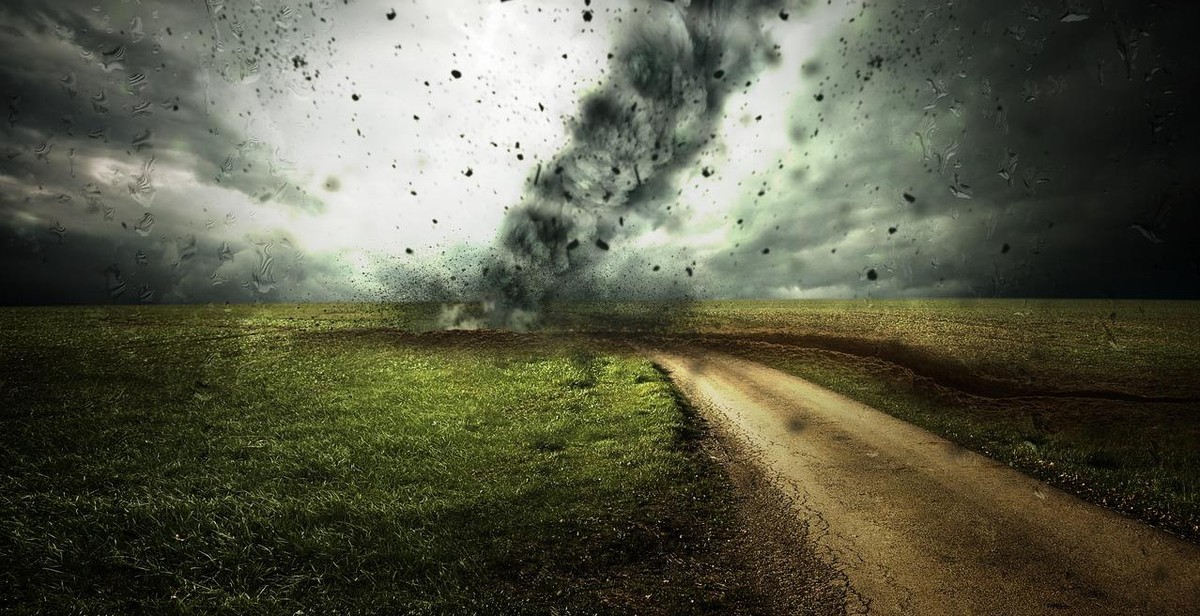Eco-Anxiety: Understanding the Mental Impact of Climate Change
Climate change is a complex and pressing issue that affects us all. Its impact on the environment, economy, and society is well-documented and widely discussed. However, the mental health implications of climate change are often overlooked. The term “eco-anxiety” has been coined to describe the psychological distress caused by the threat of environmental destruction and climate change.
As a professional article writer and content creator with years of experience, I have seen firsthand the growing concern around climate change and its impact on mental health. People are increasingly feeling overwhelmed, anxious, and even hopeless about the future of our planet. This article aims to shed light on the concept of eco-anxiety, its causes and symptoms, and ways to cope with this growing mental health issue.
What is Eco-Anxiety?
Eco-anxiety is a type of anxiety that is caused by the fear of environmental damage and climate change. It is a chronic sense of impending environmental doom that can cause feelings of helplessness, despair, and hopelessness. Eco-anxiety can manifest in different ways, including depression, anxiety, and stress-related disorders.
Causes and Symptoms of Eco-Anxiety
The causes of eco-anxiety are complex and multifaceted, but they generally stem from the perception of environmental threats and the lack of action to address them. Symptoms of eco-anxiety may include feelings of dread, fear, anger, and guilt, as well as physical symptoms such as headaches, nausea, and fatigue.
In the following sections, we will explore the different types of eco-anxiety, its impact on mental health, and ways to manage and cope with this growing mental health issue.
What is Eco-Anxiety?
Eco-anxiety is a relatively new term that describes the mental distress caused by environmental concerns and the impact of climate change. It is a form of anxiety that is triggered by the fear of ecological disasters and the negative effects of human activity on the environment. As the global climate crisis continues to worsen, eco-anxiety is becoming increasingly common among people of all ages and backgrounds.
Defining Eco-Anxiety
Eco-anxiety is a type of anxiety that is characterized by feelings of fear, helplessness, and despair caused by environmental concerns. It is a response to the overwhelming sense of doom and gloom that is often associated with the climate crisis. People who experience eco-anxiety may feel a sense of guilt or shame for their own contributions to climate change, or they may feel powerless to effect change on a larger scale.
Eco-anxiety can manifest in a variety of ways, from mild worry to debilitating panic attacks. It can also lead to physical symptoms such as headaches, insomnia, and digestive problems. While eco-anxiety is not an official diagnosis, it is recognized by mental health professionals as a legitimate concern.
Symptoms of Eco-Anxiety
The symptoms of eco-anxiety can vary from person to person, but some of the most common include:
- Feeling overwhelmed or helpless in the face of environmental concerns
- Experiencing a sense of dread or doom about the future
- Feeling guilty or ashamed about personal contributions to climate change
- Experiencing physical symptoms such as headaches, insomnia, or digestive problems
- Feeling a sense of disconnect from society or a loss of hope for the future
Eco-anxiety can be particularly challenging for those who live in areas that are most affected by climate change, such as communities that are prone to flooding or wildfires. It can also be difficult for young people who are facing an uncertain future due to the impact of climate change on the planet.
| Eco-Anxiety | Climate Change |
|---|---|
| Environmental concerns | Global crisis |
| Feelings of fear and helplessness | Negative impact on the environment |
| Physical symptoms | Uncertain future |
It is important to recognize and address eco-anxiety in order to prevent it from developing into a more serious mental health condition. Seeking support from mental health professionals, engaging in self-care activities, and taking action to reduce personal carbon footprints can all be helpful strategies for managing eco-anxiety.
The Mental Health Impact of Climate Change
Climate change does not only affect the environment, but it also has a significant impact on mental health. The connection between climate change and mental health is complex and multifaceted, but it is crucial to understand how one affects the other.
Understanding the Connection Between Climate Change and Mental Health
Climate change affects mental health in several ways. First, it can cause eco-anxiety or climate anxiety, which is a feeling of fear, helplessness, and hopelessness about the impending environmental crisis. People who experience eco-anxiety may feel overwhelmed by the scale of the problem and feel powerless to make a difference.
Second, climate change can trigger or exacerbate mental health conditions such as depression, anxiety, and post-traumatic stress disorder (PTSD). Natural disasters such as hurricanes, floods, and wildfires can cause trauma, loss, and displacement, leading to mental health challenges. Moreover, climate change can affect people’s quality of life by reducing access to resources such as food, water, and shelter, leading to stress and mental health challenges.
The Psychological Effects of Climate Change
The psychological effects of climate change are far-reaching and can affect people of all ages, genders, and backgrounds. Children and young people are particularly vulnerable to the psychological effects of climate change as they are more likely to experience anxiety and fear about their future. The psychological effects of climate change can also lead to physical health problems such as headaches, fatigue, and insomnia.
Climate change can also affect social relationships, leading to feelings of isolation and loneliness. For example, people who are forced to leave their homes due to natural disasters or environmental degradation may experience a loss of community and social support, leading to mental health challenges.
Conclusion
The mental health impact of climate change is significant and cannot be ignored. It is essential to understand the connection between climate change and mental health and take action to address it. By addressing the root causes of climate change and providing support and resources to those affected by it, we can help mitigate the mental health impact of climate change.

Coping with Eco-Anxiety
Eco-anxiety is a real and pressing issue that many people are facing in today’s world. It is a feeling of overwhelm, fear, and despair caused by the ongoing and escalating climate crisis. The good news is that there are several self-care strategies that you can adopt to help cope with eco-anxiety.
Self-Care Strategies for Coping with Eco-Anxiety
Self-care is essential when it comes to coping with eco-anxiety. Here are some self-care strategies that you can adopt:
- Practice mindfulness: Mindfulness techniques such as meditation, deep breathing, and yoga can help you manage your anxiety and stress levels. It can also help you stay present and focused on the present moment.
- Connect with nature: Spending time in nature can help you feel connected to the environment and reduce your eco-anxiety. Go for a hike, take a walk in the park, or spend some time in your garden.
- Limit your exposure to the news: While it’s important to stay informed about the climate crisis, consuming too much negative news can increase your anxiety levels. Limit your exposure to the news and take breaks when you need to.
- Take action: Taking action on the environment can help you feel empowered and reduce your eco-anxiety. This could include making changes in your lifestyle, volunteering for environmental organizations, or advocating for policy changes.
Seeking Professional Help
If your eco-anxiety is impacting your daily life and self-care strategies aren’t helping, it may be time to seek professional help. Here are some options:
| Type of Professional Help | Description |
|---|---|
| Therapy | Talking to a mental health professional can help you manage your eco-anxiety and develop coping strategies. |
| Support Groups | Joining a support group can help you connect with others who are experiencing similar feelings and provide a sense of community. |
| Hotlines | There are several hotlines available that provide support and resources for those experiencing eco-anxiety. |
Remember, it’s essential to take care of your mental health and seek help when needed. Coping with eco-anxiety is a journey, and it’s okay to ask for help along the way.

Conclusion
Climate change is a real and pressing issue that affects not just the environment, but also our mental health. The rising temperatures, natural disasters, and loss of biodiversity can lead to eco-anxiety, a feeling of helplessness and despair about the state of the planet.
However, understanding the root causes of eco-anxiety and taking action can help alleviate this burden. By making small changes in our daily lives, such as reducing our carbon footprint and supporting sustainable practices, we can contribute to a healthier planet and a healthier mindset.
Moreover, seeking professional help and support from loved ones can also aid in managing eco-anxiety. It is important to remember that we are not alone in this fight against climate change and that together, we can make a difference.
Final Thoughts
As a content creator and writer, I have personally witnessed the impact of climate change on our planet. It is crucial that we take action to protect our environment and mental health. By raising awareness and educating ourselves and others, we can work towards a sustainable future for generations to come.
- Reduce your carbon footprint
- Support sustainable practices
- Seek professional help and support from loved ones
- Raise awareness and educate others
Let us take responsibility for our actions and work towards a better future.
